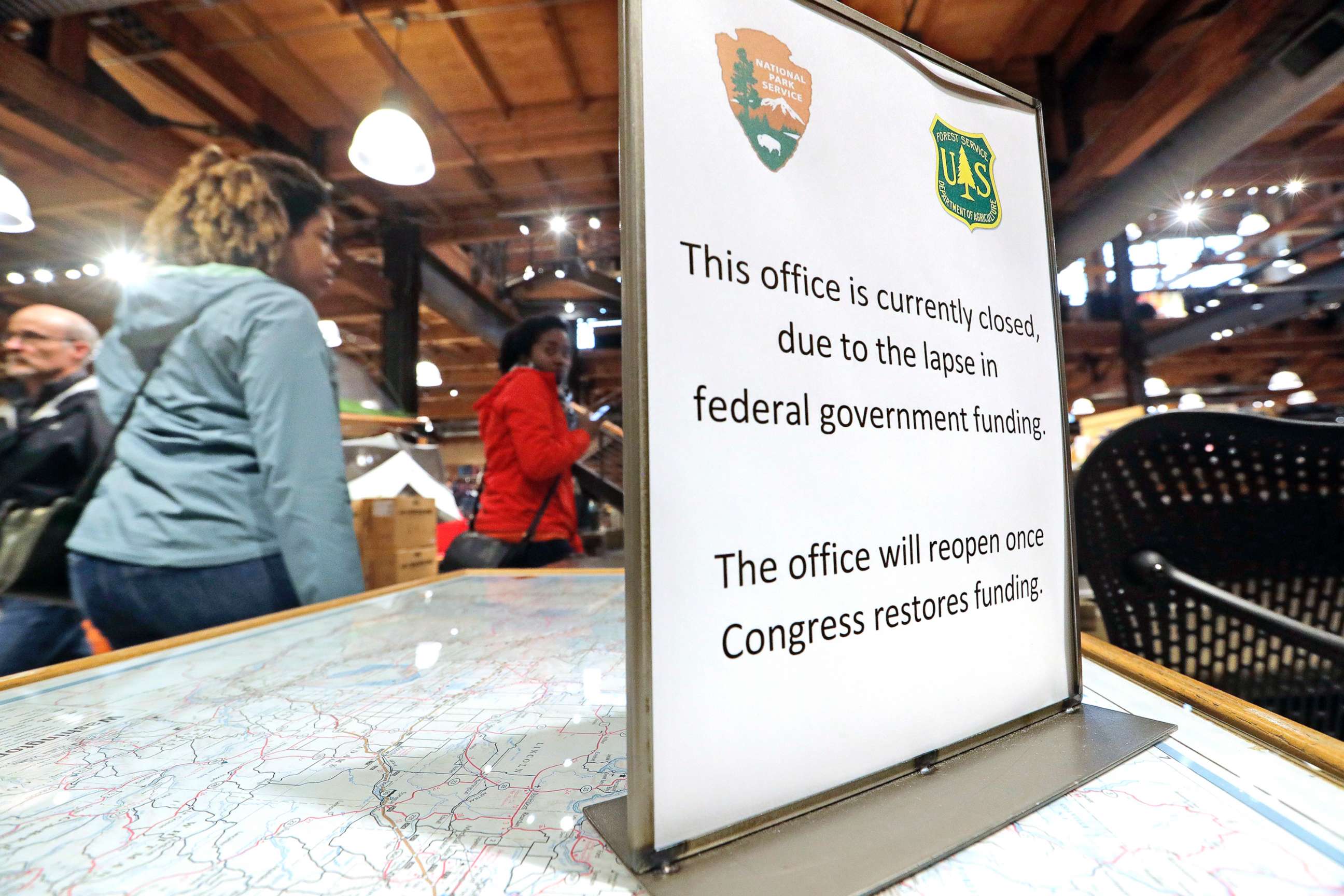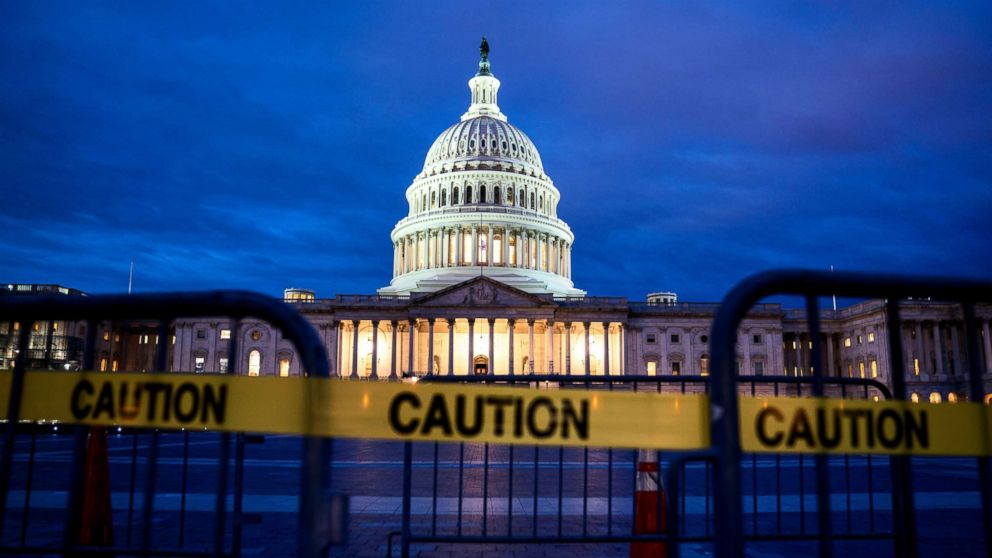Federal workers are suing the US government over the shutdown
Federal workers on Wednesday sued the U.S. government over the shutdown, protesting the requirement that employees who are considered "essential" must report to work without pay, a major federal workers' union announced Monday.
An estimated 420,000 employees fall into the category of being essential, many of them working for the Department of Homeland Security and the Justice Department, focused on public safety. In previous government shutdowns, Congress approved back pay for federal employees, something that's likely to happen again once the standoff between President Donald Trump and congressional Democrats ends.
But the American Federation of Government Employees, one of the largest federal workforce unions, said it filed the lawsuit because it isn't fair to force people to work without pay and disrupt paychecks, especially for workers who protect public safety. Some of the people most affected by the policy are border patrol agents, airline security workers and immigration enforcement personnel.
"Our members put their lives on the line to keep our country safe," said AFGE President J. David Cox Sr. "Requiring them to work without pay is nothing short of inhumane."
The White House did not immediately respond to requests for comment. The defendant in the lawsuit is listed as "The United States Government." Trump is not mentioned directly.
The lawsuit came on day 10 of the third government shutdown this year.

While some agencies, including Veterans Affairs and the Defense Department already had enough money to carry them through next fall, nine departments and dozens of agencies have been shuttered. That triggered an automatic furlough of some 380,000 employees, according to estimates released by the Senate Appropriations Committee.
But under federal rules, a government shutdown cancels all annual leave, including planned vacations or sick leave for essential personnel. Around 420,000 employees are estimated to have been told they were considered crucial enough to cancel that leave and return to work.
The union sued the government after the 2013 shutdown, arguing that Fair Labor Standards Act requires that all employees are paid on time for their services. Last year, the U.S. Court of Federal Claims concluded that employees were entitled to twice their back pay because of the violation.
Jacqueline Simon, policy director for AFGE, said many federal offices are probably using some form of managerial discretion. For example, if someone is in the hospital or overseas and unable physically to return to work, it's likely their managers would overlook that. But, she added, technically someone could be charged as absent without leave and fired.
Simon said that overall, the shutdown is unfair to workers, who will start to see their paychecks disappear around Jan. 11. Paychecks issued in mid-January would cover time since the shutdown began, and depending upon the agency, most paychecks would be dramatically reduced.
Simon said she wouldn't be surprised if at some point federal workers file for unemployment or look for other work.
"People can only afford to keep a job without pay for so long," she said.




